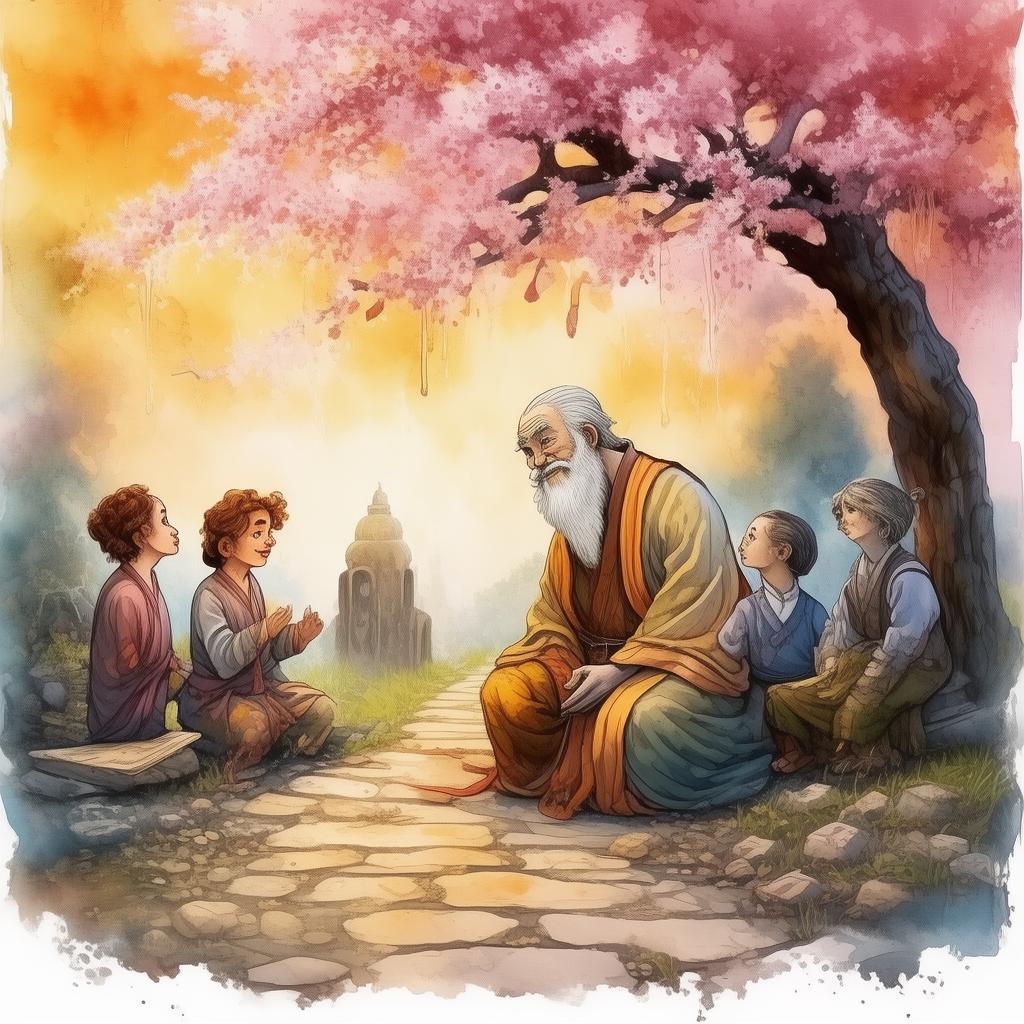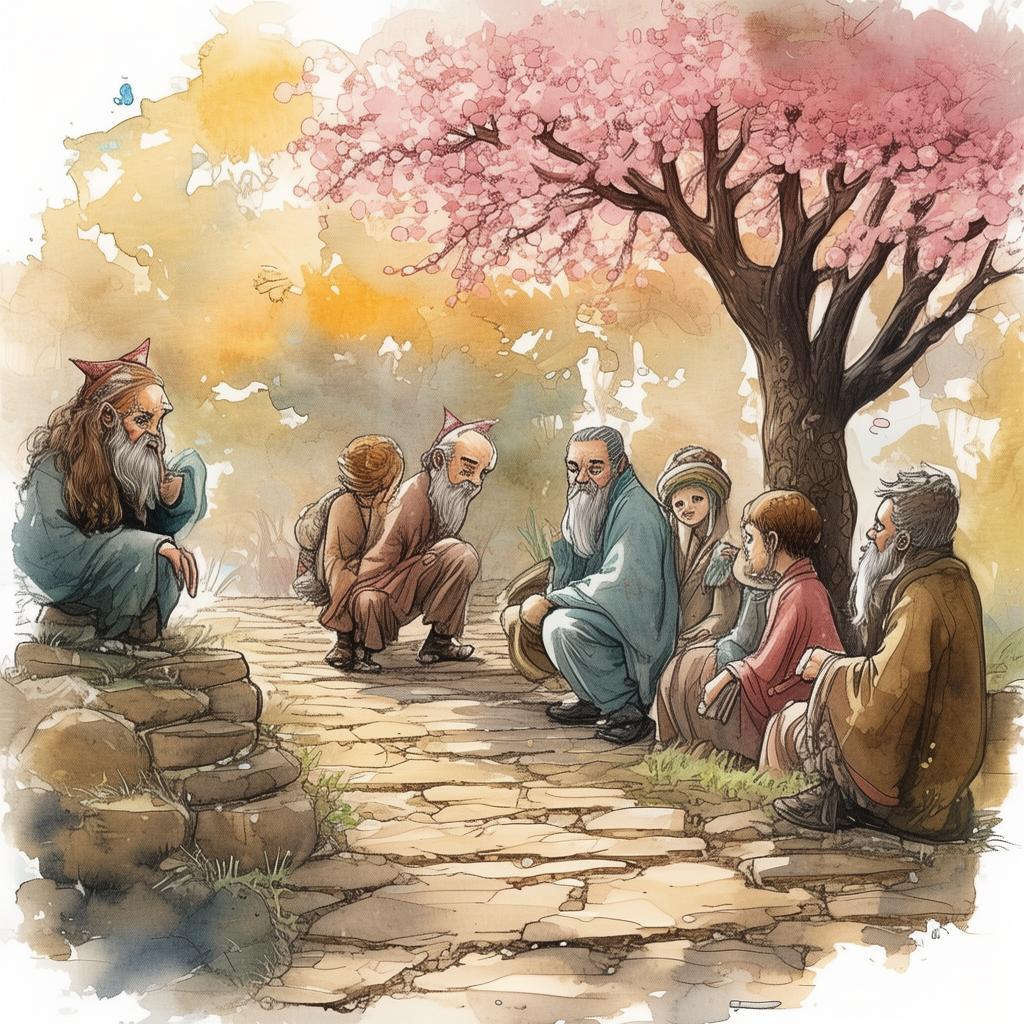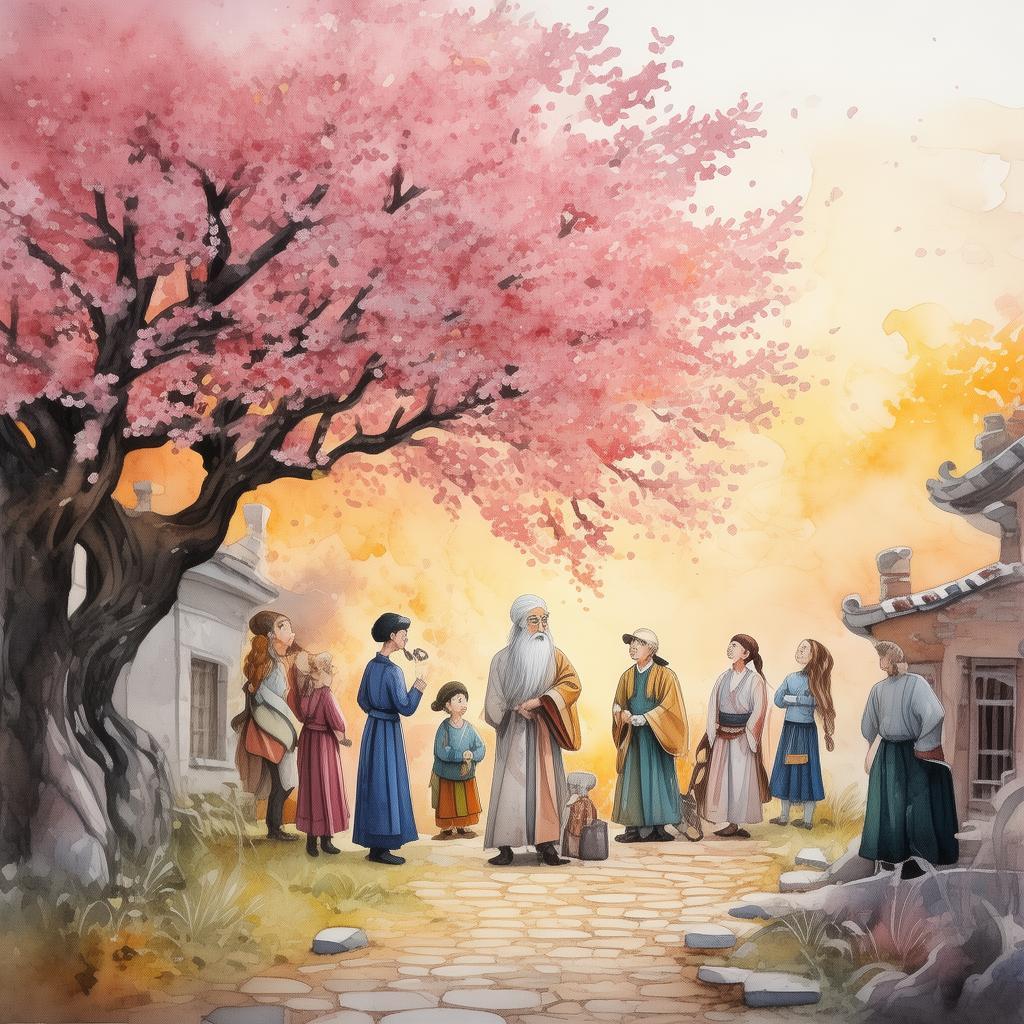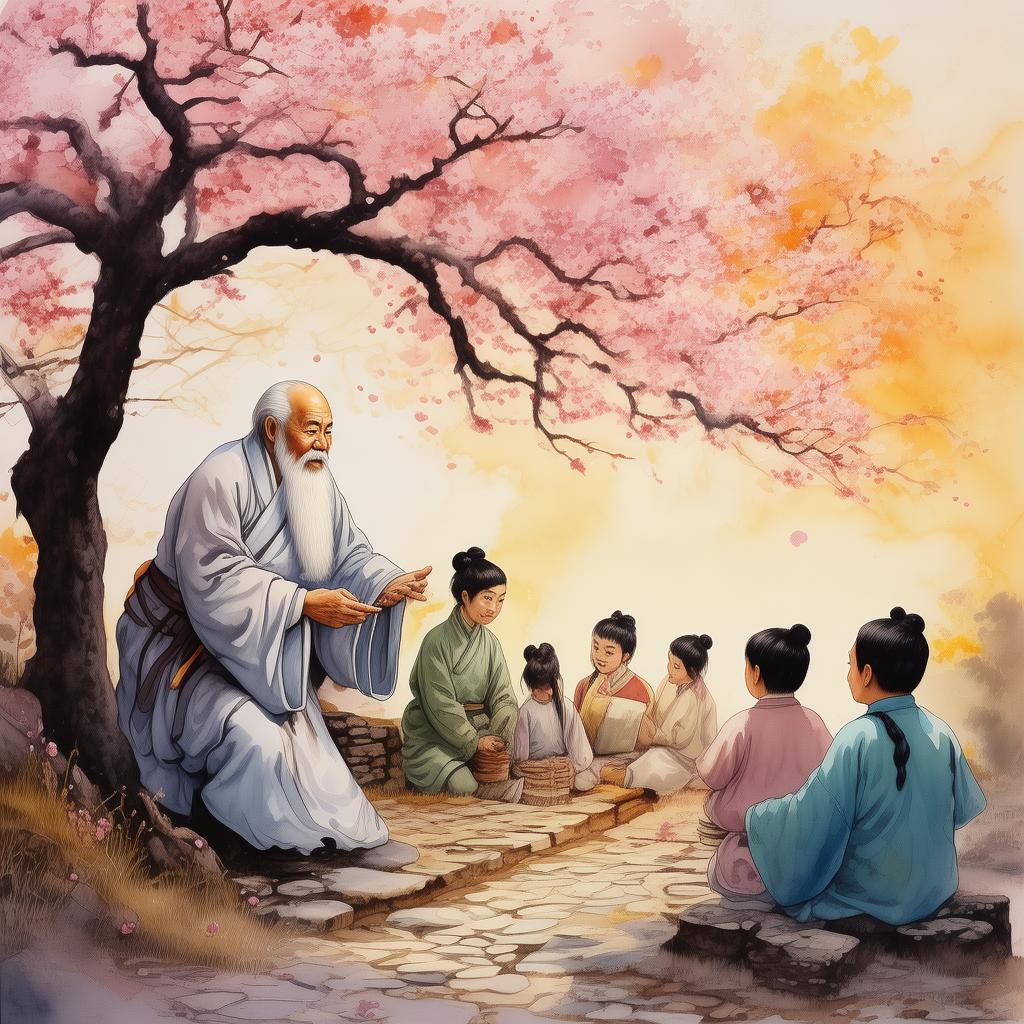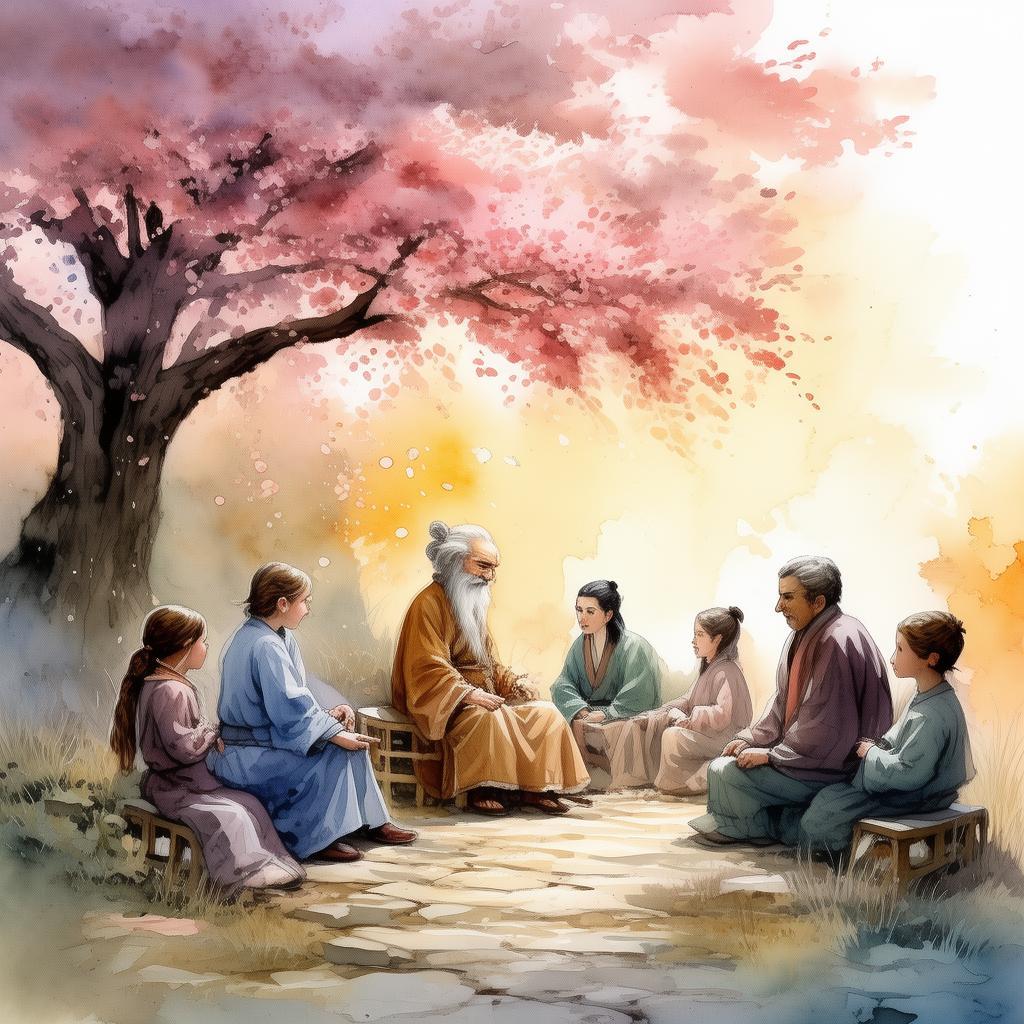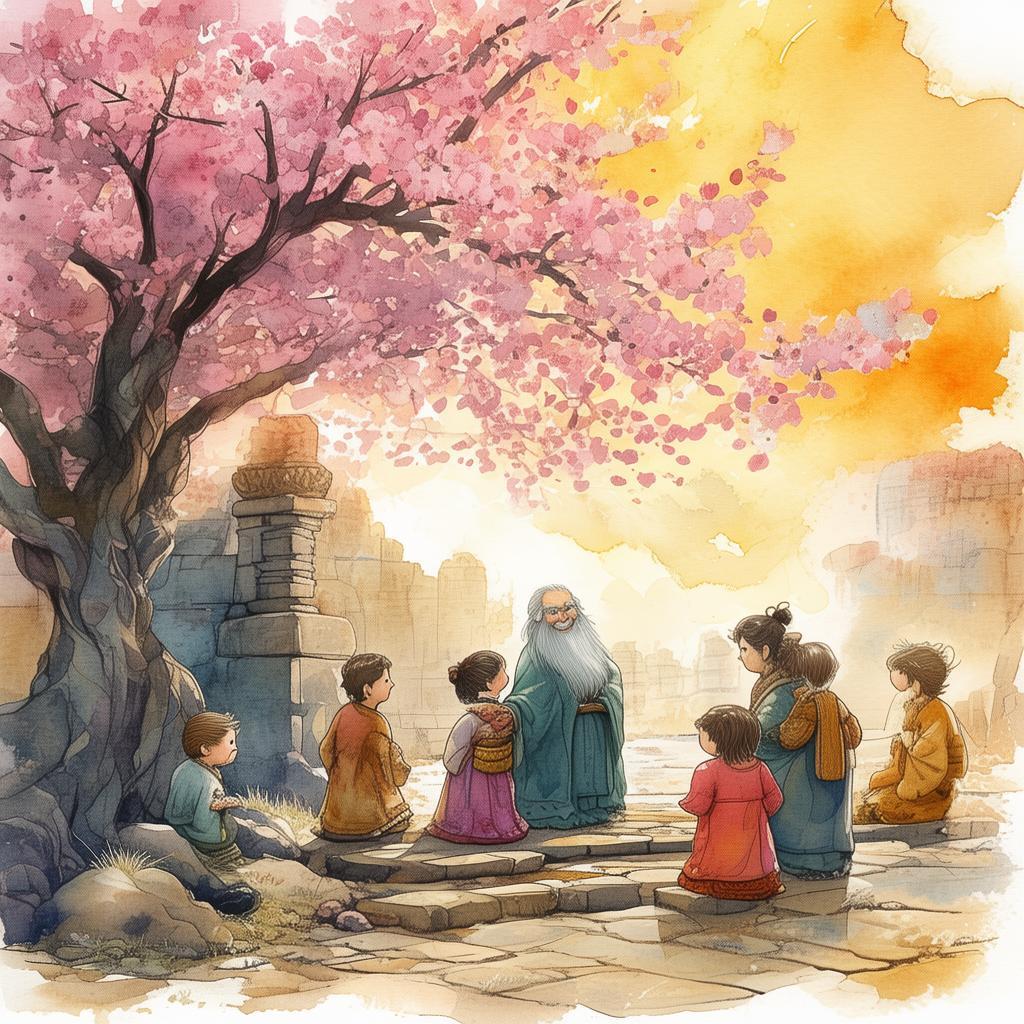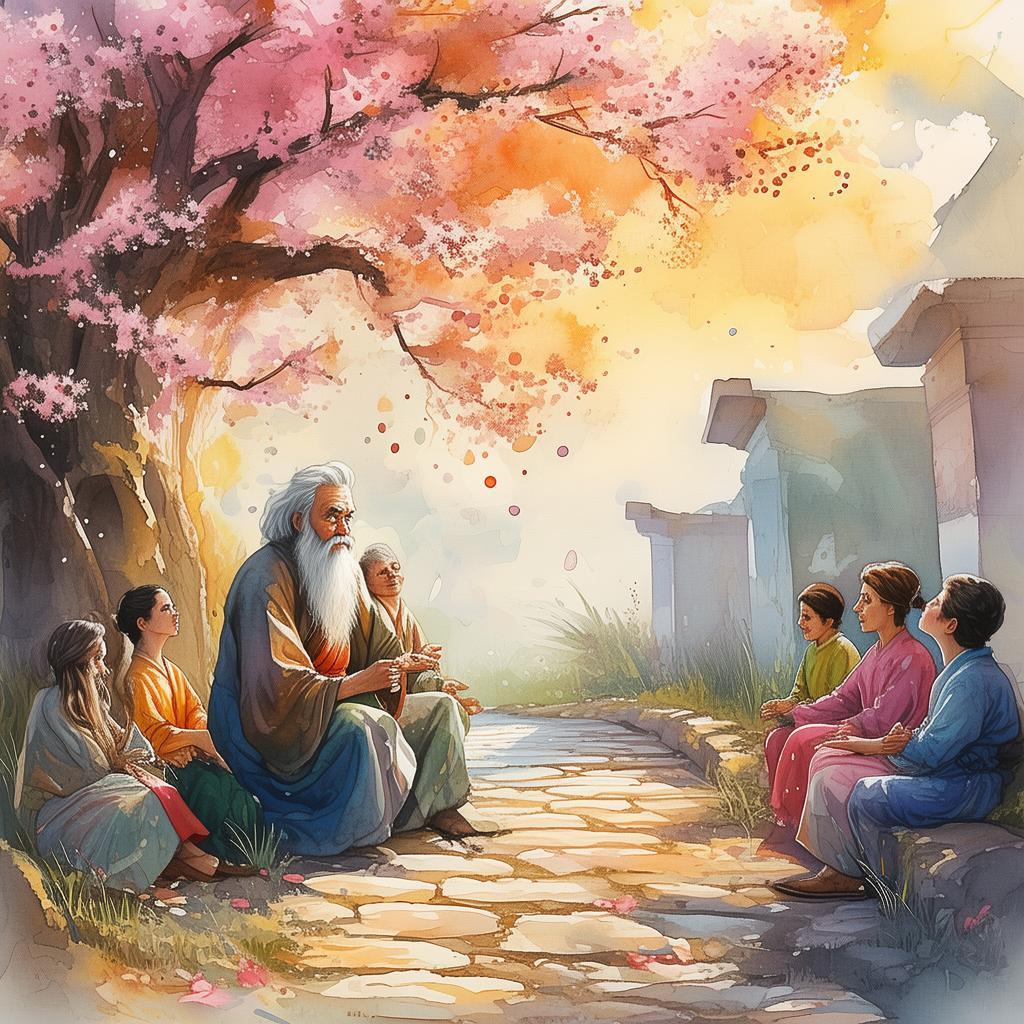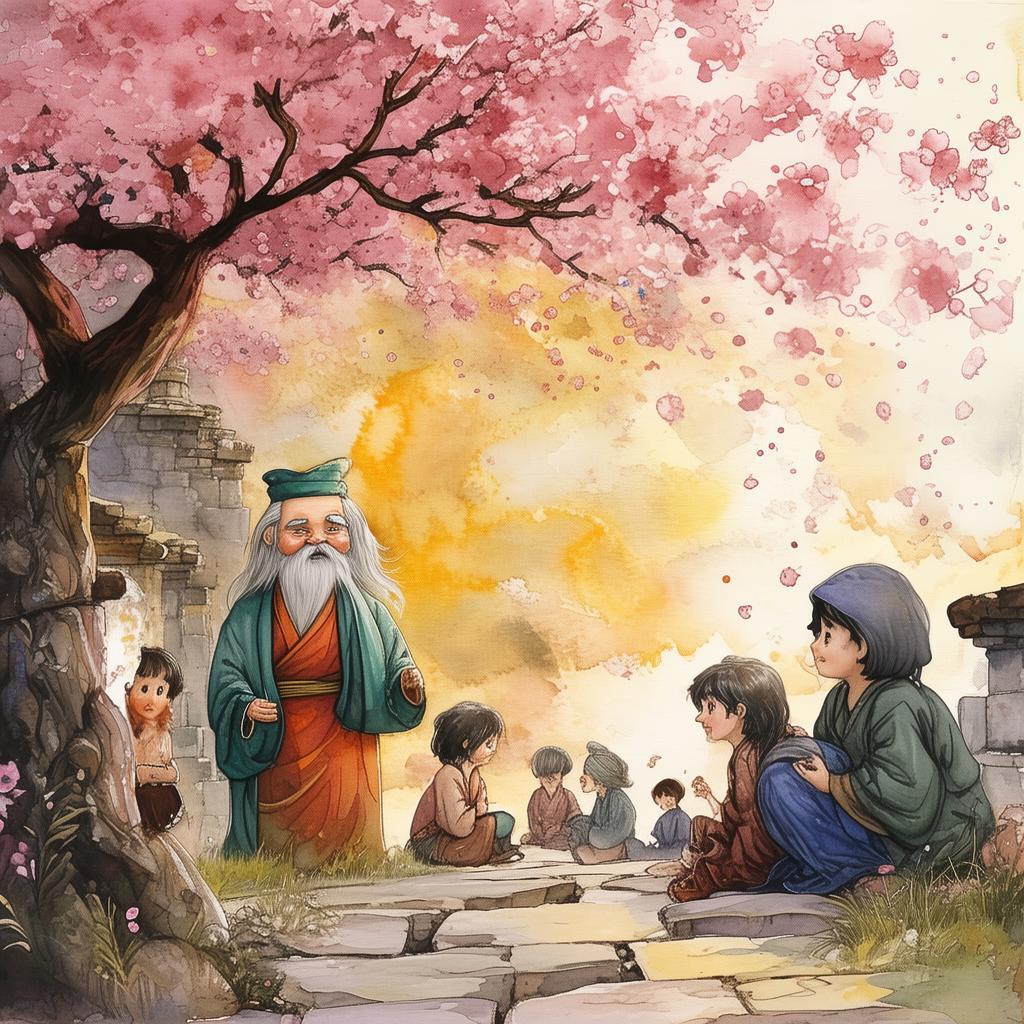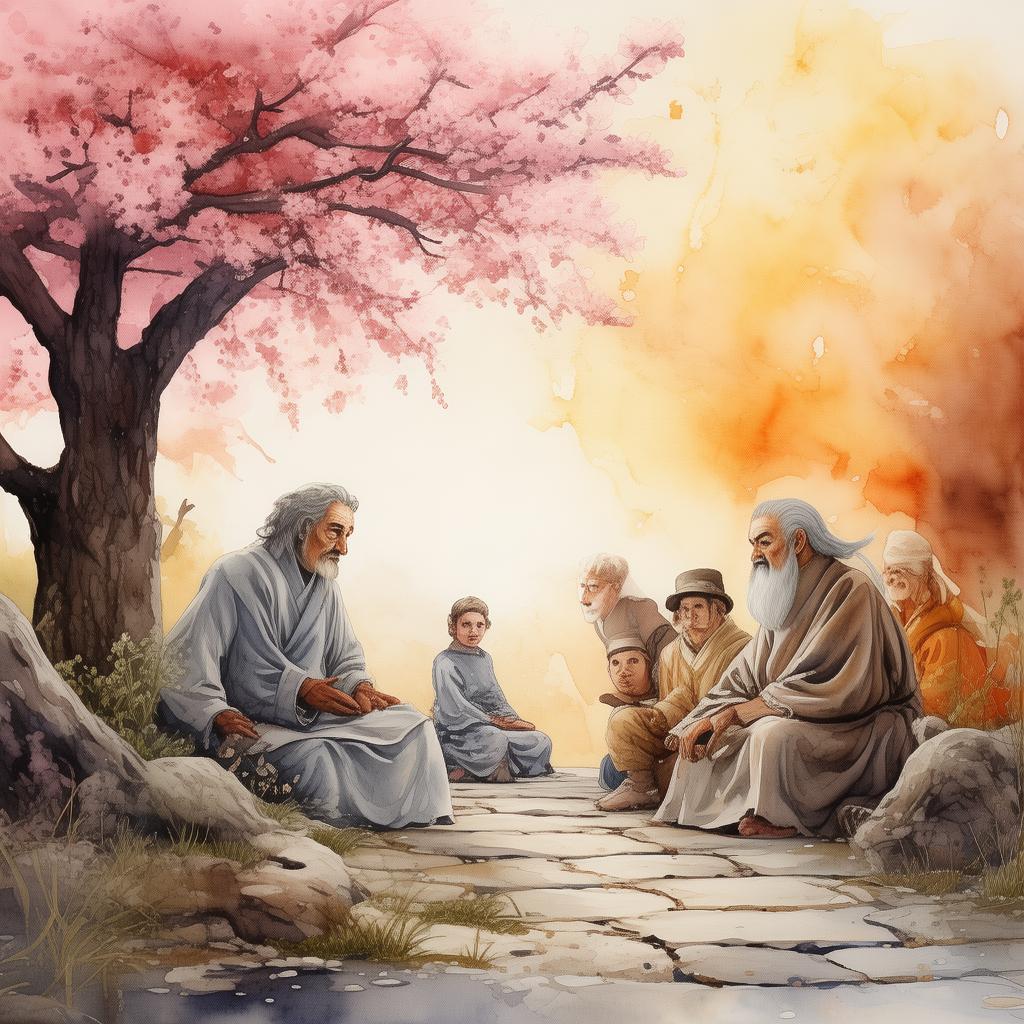The Eastern Sun's Dying Light, North's Shadow Looms
In the heart of the Eastern Empire, where the sun rose with the first light of dawn and set with the last, there lay a kingdom known for its prosperity and wisdom. The people of this land, the Liang, revered their ancient prophecies, which they believed were the guiding threads of fate. The kingdom was at its zenith, but the signs of its decline were subtle, like the first whispers of wind before a storm.
Amidst the bustling capital, there lived a young sage named Jing. His eyes held the wisdom of the ages, and his mind was a labyrinth of ancient texts and forgotten lore. Jing was the son of the kingdom's most revered scholar, and from a young age, he had been imbued with the weight of the Liang's destiny.
The kingdom's prosperity was not without its shadows. The North, a land shrouded in mystery and ice, had begun to cast its long shadow over the Eastern Empire. The people spoke in hushed tones of the North's shadow, a foreboding presence that seemed to seep through the very soil of the land.
One evening, as the sun dipped below the horizon, casting a golden glow over the capital, Jing was summoned to the throne room. The king, his father's former mentor, sat upon the throne, his face etched with worry.
"The North's shadow looms, Jing," the king began, his voice heavy with sorrow. "The prophecies speak of a great darkness descending upon us. Only you, with your knowledge of the ancient texts, can unravel the mystery and save our kingdom."
Jing bowed his head, feeling the weight of the king's words. He had spent years studying the prophecies, but the one that concerned the North's shadow was cryptic and elusive. The king handed him a scroll, its edges frayed with age.
"This scroll," the king said, "contains the last known fragment of the prophecy. It speaks of a great sage who will emerge from the East to confront the darkness. But the scroll is incomplete. You must seek out the other fragments and piece together the truth."
With the scroll in hand, Jing set out on a journey that would take him through the length and breadth of the Eastern Empire. He visited ancient temples, deciphered forgotten runes, and sought out the wisdom of the elders. Along the way, he encountered a myriad of challenges, from treacherous landscapes to cunning adversaries.
One day, Jing came upon an ancient library, hidden deep within a dense forest. The library was said to contain the wisdom of the ages, and it was here that he found the first fragment of the prophecy. It spoke of a great tree, its roots stretching deep into the earth, its branches reaching towards the heavens. The tree was a symbol of life and renewal, but it was also a symbol of the kingdom's strength and resilience.
Jing continued his journey, seeking out the other fragments. Each one he found brought him closer to understanding the prophecy's full meaning. He discovered that the North's shadow was not just a physical darkness, but a metaphor for the corruption and decay that had begun to seep into the kingdom's very soul.
As the days passed, Jing realized that the true threat was not from the North, but from within. The kingdom's prosperity had led to complacency, and the people had forgotten the virtues of humility and self-sacrifice. It was these virtues that had once made the kingdom strong, and it was these virtues that he now needed to remind them of.
Jing returned to the capital, his heart heavy with the weight of his discovery. He knew that he must act quickly, for the North's shadow was growing stronger with each passing day. He gathered the kingdom's leaders and elders in the great hall, and he began to speak.
"The North's shadow looms not just over our land, but over our hearts," Jing declared. "We must return to the virtues that once made us strong. We must embrace humility and self-sacrifice, and we must stand united against the darkness within us."
The people listened in silence, their faces reflecting the weight of Jing's words. Slowly, they began to understand the gravity of the situation. They saw the truth in Jing's message, and they knew that they must change.
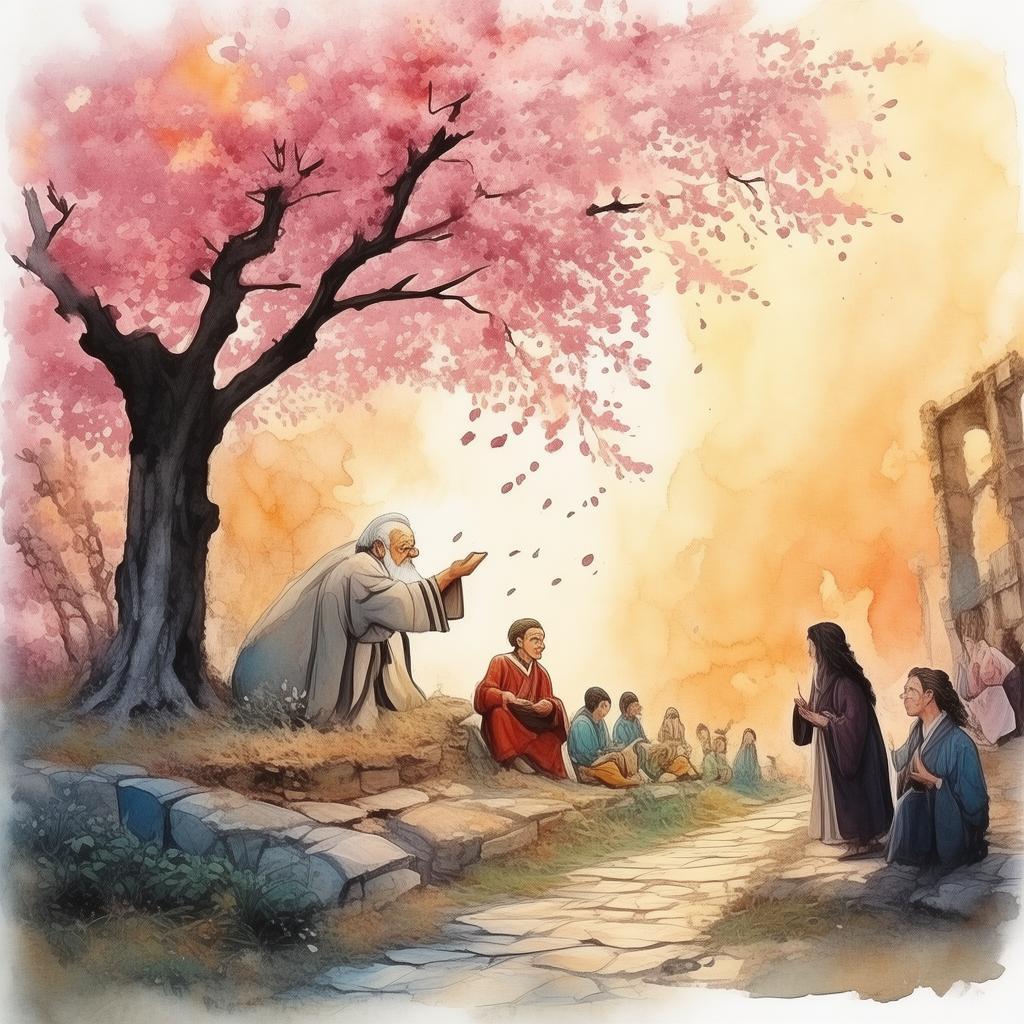
The next day, the people of the Liang rose up, determined to reclaim their lost virtues. They cleaned the temples, tended to the sick, and worked together to rebuild the kingdom. The North's shadow began to recede, and the kingdom's prosperity returned.
Jing, the young sage, had fulfilled his destiny. He had not only saved his kingdom from the North's shadow but had also reminded the people of the true strength that lay within them. The Eastern Sun's dying light had given way to a new dawn, and the people of the Liang were ready to face whatever challenges lay ahead.
The kingdom flourished once more, and the wisdom of the ancient prophecies was passed down through generations. And so, the story of Jing and the North's shadow became a legend, a testament to the power of ancient wisdom and the resilience of the human spirit.
✨ Original Statement ✨
All articles published on this website (including but not limited to text, images, videos, and other content) are original or authorized for reposting and are protected by relevant laws. Without the explicit written permission of this website, no individual or organization may copy, modify, repost, or use the content for commercial purposes.
If you need to quote or cooperate, please contact this site for authorization. We reserve the right to pursue legal responsibility for any unauthorized use.
Hereby declared.
